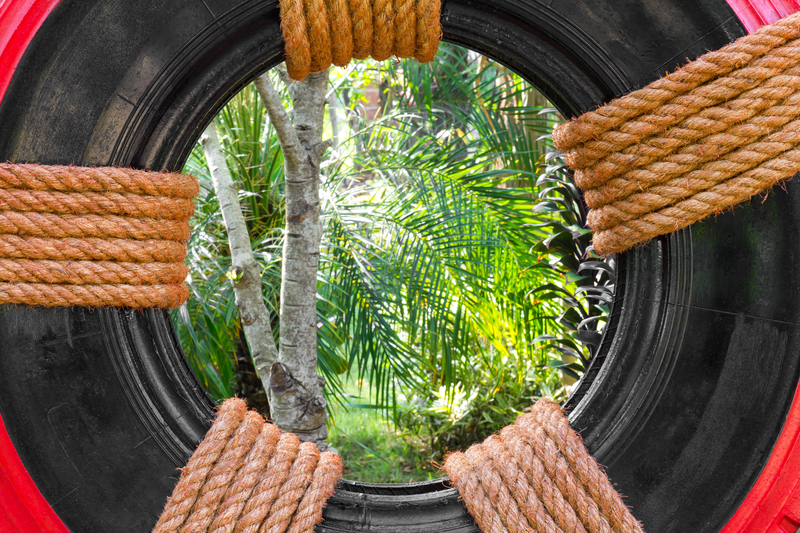Lifestyle Changes for a Cleaner, Waste-Free Home
Are you dreaming of a cleaner, clutter-free, and waste-free home? Changing your lifestyle is the first step toward creating a sustainable and eco-friendly household. In this comprehensive guide, you'll explore actionable lifestyle shifts, easy zero-waste swaps, and invaluable tips for anyone who wants to embrace green living and reduce waste at home. Let's dive in and transform your living space into a beacon of sustainability and cleanliness!
Why Pursue a Waste-Free, Cleaner Home?
Embracing a waste-free lifestyle is a journey that goes beyond cleaner countertops. It's about minimizing our impact on the environment, fostering healthier habits, and creating a serene and organized space that promotes well-being. Here's what you stand to gain:
- Reduce your ecological footprint by cutting down on waste, plastics, and toxins.
- Declutter your home for a stress-free, visually appealing environment.
- Save money by making thoughtful, sustainable choices.
- Protect your family's health with non-toxic cleaning and storage solutions.
- Contribute to a cleaner, greener planet for future generations.

Essential Lifestyle Changes for a Waste-Free Home
1. Declutter with Purpose for a Cleaner Home
Decluttering doesn't just make your home tidier; it also helps you become more conscious of what you own and use. Here's how to get started:
- Tackle one room at a time to avoid feeling overwhelmed. Begin with high-impact areas like your kitchen or bathroom.
- Sort your items into categories: keep, donate, recycle, or upcycle.
- Adopt a "one in, one out" policy for purchases to maintain a clutter-free environment.
2. Switch to Sustainable Cleaning Products
Our homes are filled with chemicals and plastics hidden in conventional cleaning supplies. For a waste-free, eco-friendly home, swap out these products for sustainable alternatives:
- Choose refillable or concentrated cleaning solutions that cut down on plastic packaging.
- DIY cleaners: Make your own multipurpose cleaner using vinegar, baking soda, and essential oils.
- Use reusable cleaning cloths made from organic cotton or bamboo instead of disposable wipes.
3. Rethink Your Approach to Food and Kitchen Waste
The kitchen is a major source of household waste. Here's how you can make it a waste-free zone:
- Plan meals ahead to avoid overbuying and food spoilage.
- Store leftovers in glass containers instead of single-use plastics.
- Shop at bulk stores using reusable bags and jars for grains, snacks, and spices.
- Start composting food scraps to transform waste into valuable garden soil.
4. Adopt Zero-Waste Swaps in Daily Life
Small, sustainable swaps can have a significant impact on your journey toward a zero-waste home. Consider these changes:
- Replace paper towels with washable cloths.
- Use beeswax wraps or silicon lids instead of plastic wrap in the kitchen.
- Switch to bar soap, shampoo, and conditioner for the bathroom--these last longer and eliminate plastic bottles.
- Opt for rechargeable batteries instead of single-use to reduce hazardous waste.
5. Shop Mindfully and Choose Eco-Friendly Brands
A cleaner, greener home starts at the store. Every purchase is a vote for the kind of world you want. Here's how to shop sustainably:
- Buy in bulk to reduce packaging waste.
- Support local farmers markets and brands with eco-friendly values.
- Look for minimal or compostable packaging whenever possible.
- Avoid impulse buys and invest in quality products built to last.
Sustainable Room-by-Room Strategies for a Waste-Free Home
The Kitchen: Heart of a Cleaner, Waste-Free Home
- Switch to loose-leaf tea and a reusable infuser instead of tea bags with plastic lining.
- Collect vegetable scraps for homemade broth, reducing waste and flavoring your meals naturally.
- Upgrade to a dishwasher with an eco-wash mode or wash dishes by hand efficiently.
- Label leftovers with the date to prevent food waste.
The Bathroom: Sustainable Self-Care and Cleaning
- Use bamboo toothbrushes and refillable dental floss.
- Swap disposable razors for a metal safety razor.
- Buy products in bulk or refills for soaps, shampoos, and lotions.
- Install a low-flow showerhead to save water.
The Laundry Room: Clean Clothes, Cleaner Home
- Wash clothes in cold water to save energy and prolong fabric life.
- Line-dry when possible--sunlight is the cleanest dryer!
- Use concentrated or plastic-free detergents (powder, sheets, or bars), minimizing chemical and packaging waste.
The Living Room: Minimalism Meets Sustainability
- Limit "fast decor": Choose timeless, multi-functional pieces over cheap, trendy throwaways.
- Incorporate indoor plants for better air quality and a natural look.
- Digitize books and magazines to reduce paper clutter.
The Bedroom: Creating a Peaceful, Green Retreat
- Choose natural bedding like organic cotton or bamboo sheets.
- Invest in a mattress made with renewable materials.
- Repurpose old textiles into cleaning rags or for craft projects.
Green Cleaning: Homemade Recipes for a Cleaner Home
Did you know you can make effective, non-toxic cleaners at home with common pantry staples? Here are simple recipes for a waste-free cleaning routine:
- All-purpose cleaner: Mix equal parts distilled white vinegar and water, add a few drops of essential oil (like lemon or tea tree) for scent and antimicrobial properties.
- Scrubbing paste: Combine baking soda with a little water for scrubbing sinks, tubs, and tough stains.
- Glass cleaner: Use 1/4 cup vinegar, 1/4 cup rubbing alcohol, and 2 cups water in a spray bottle for streak-free windows and mirrors.
Store these homemade solutions in reusable glass spray bottles for an added eco-friendly touch!
Mastering Composting and Recycling at Home
Beginner Tips for Composting Food Waste
- Countertop compost bins are ideal for small kitchens.
- Compost fruit and veggie scraps, coffee grounds, eggshells, and grains.
- Avoid composting meat, dairy, and oils unless you have an industrial compost program.
- Regularly turn your compost to aerate and speed up decomposition.
Smart Recycling Habits for a Waste-Free Household
- Rinse containers before recycling to prevent contamination.
- Check your municipality's guidelines--not all plastics are recyclable locally.
- Reuse and repurpose before recycling--get creative with jars, boxes, and packaging!
Innovative Waste-Free Habits for Long-Term Success
- Set clear goals and track your progress--celebrate each reduction in landfill waste!
- Host clothing swaps or upcycling workshops in your community.
- Join local zero-waste social media groups for support and inspiration.
- Implement a no-buy month to challenge your consumption habits.
Common Barriers & How to Overcome Them
- Lack of time: Start with one lifestyle change per week.
- Budget concerns: Many waste-free swaps save money over time (reusable vs single-use).
- Habit resistance: Involve the whole family, and turn routine into a fun challenge.
- Uncertainty: Educate yourself and connect with others on the same journey.

Frequently Asked Questions (FAQs) about Waste-Free Living
-
Is a waste-free home realistic for families?
Absolutely! Start with small, manageable lifestyle changes and involve everyone in the household, making it a team effort. -
How do I compost indoors?
Countertop bins or worm composting (vermicomposting) are great solutions for small spaces and apartments. -
How can I reduce paper waste at home?
Digitize mail, pay bills online, use cloth napkins, and print only when necessary. -
Is zero-waste living expensive?
While some items like stainless steel containers can have a higher upfront cost, most eco-friendly habits, like reusing and buying less, save money over time!
Conclusion: Begin Your Journey to a Cleaner, Waste-Free Home Today
Living a lifestyle centered around waste reduction and environmental responsibility is not only possible--it's deeply rewarding. Even small changes, when done consistently, enrich your life with cleaner living spaces, better health, and a lighter ecological footprint. Remember, progress beats perfection: choose one or two tips to start, and watch your efforts blossom into a sustainable, waste-free home you can be proud of!
For more tips, inspiration, and actionable guides on zero-waste living, bookmark this article and share your journey with your community. Let's build cleaner, happier homes--one habit at a time!